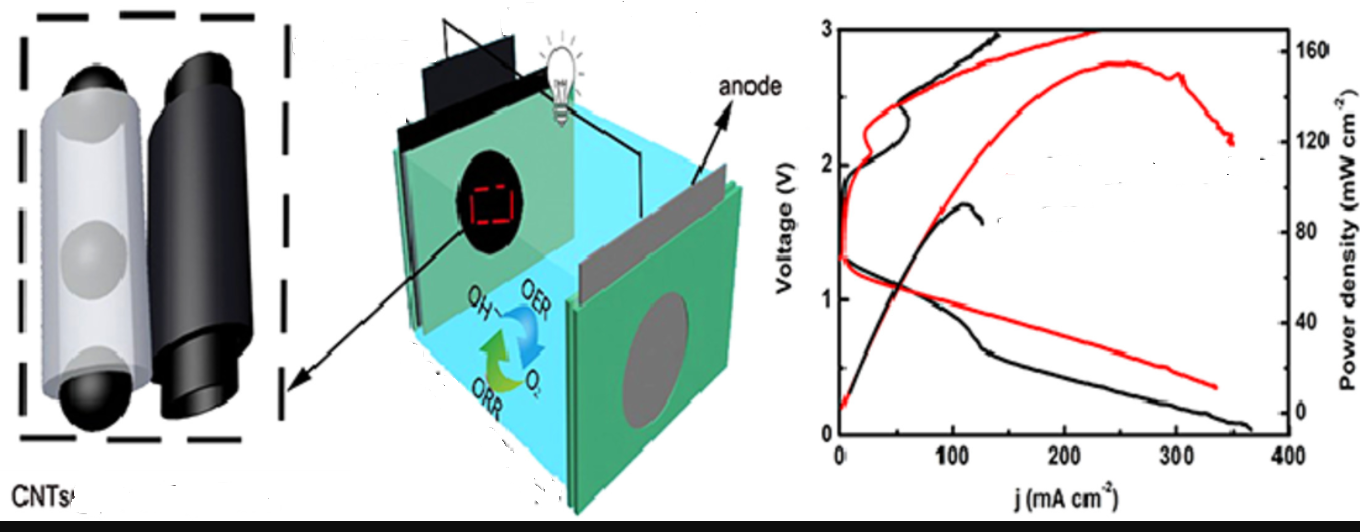
A facile method to fabricate carbon nanotube supported over carbon nanofibers aided by transition metals as air cathode for metal-air batteries
Abstract:
Recently, various electrochemical storage device such as supercapacitors, metal ion batteries and metal air batteries have been designed and employed. Among these, the metal-air batteries such as zinc air batteries, aluminum air batteries and lithium air batteries are promising because of their high theoretical energy density. Initially, lithium-air batteries attracted much attention due to high theoretical specific capacity (11.4 kWh kg-1) but high cost, rechargeability issues, and substantial wastage of energy in the form of heat limited its use. The zinc air batteries is a promising alternative due to low cost (less than 10 $ kW-1 h-1), high theoretical energy density (1086 Wh kg-1), volumetric capacity (5855 mA h L-1) and environmental friendliness but they still have some limitations which needs to be addressed. For example, the oxygen evolution reaction (OER) and oxygen reduction reaction (ORR) at the air electrode, during charging and discharging cycle, exhibit sluggish kinetics. The use of catalysts based on precious metals and their oxides gives an excellent ORR/OER performance by significantly reducing the adsorption of oxygen intermediates on the surface. But their unstable structure, easy oxidation and high cost has restricted their practical application. An effective way to overcome these issues, is to design a material by combining transition metals with various carbon nanomaterials such as carbon nanofibers and/or carbon nanotubes. The addition of nanostructured carbons increases the activity as well as strength of the catalytic materials by preventing the accumulation or breakdown of metal nanoparticles and also increases the conductivity which permits rapid charge transfer. The main aim of this project is to develop air cathode materials, having superior properties compared to existing materials, based on a composite material of carbon nanotubes, nanofibers and transition metals.
Thesis Committee
- Dr. Salman Noshear Arshad (Supervisor)
- Dr. Habib-ur-Rehman (Thesis Committee Member/Evaluator)
- Dr. Ali Rauf (Thesis Committee Member/Evaluator)

